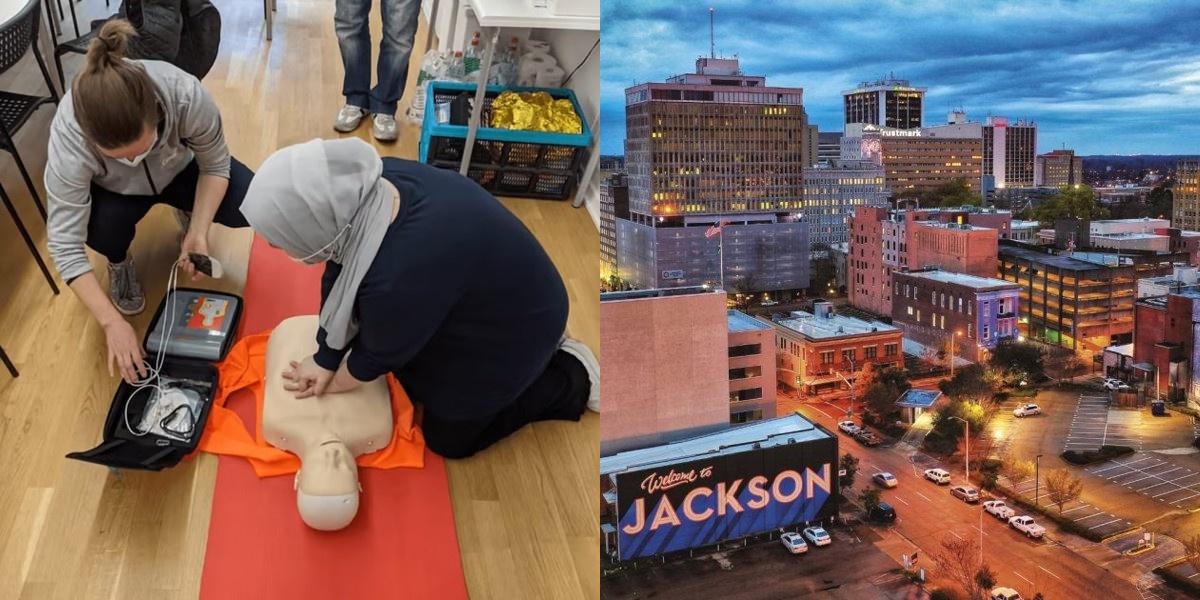What is a Paramedic?
A paramedic is a highly skilled healthcare professional who provides emergency medical care to patients in critical situations. They are trained to assess, treat, and stabilize patients at the scene of an accident or during transportation to a medical facility. Paramedics often work as part of a team alongside firefighters and police officers.
Some of the responsibilities of a paramedic include:
-
Responding to emergency calls and providing immediate medical care
-
Administering medications and intravenous fluids
-
Performing life-saving procedures such as CPR, intubation, and defibrillation
-
Monitoring vital signs and assessing patient conditions
-
Communicating with healthcare professionals to relay patient information
-
Transporting patients to medical facilities for further care
Where does a Paramedic work?
Paramedics can work in a variety of settings, including:
- Ambulance Services: Most paramedics are employed by ambulance services and respond to emergency calls in their local communities.
- Hospitals: Some paramedics work in hospital emergency rooms, where they provide advanced care and assist with the treatment of critically ill or injured patients.
- Fire Departments: Many fire departments have paramedics on staff to provide immediate medical assistance at the scene of fires and other emergencies.
- Air Medical Services: Paramedics may also work on helicopters or airplanes as part of air medical transport teams, responding to emergencies in remote or inaccessible areas.
Paramedic Requirements in Mississippi
To become a paramedic in Mississippi, you’ll need:
-
High School Diploma or GED: A foundational requirement for paramedic programs.
-
EMT-Basic Certification: Earn this certification by completing an EMT-Basic course and passing the NREMT exam.
-
Paramedic Training Program: Enroll in a program combining classroom instruction, hands-on skills training, and clinical rotations.
-
NREMT Certification: Pass the national exam to demonstrate competency.
-
Mississippi State Licensure: Apply for a state license to practice.
How to Become a Paramedic in Mississippi?
To start your paramedic career in Mississippi, you’ll need to complete the following steps:
-
Complete a Paramedic Training Program: Enroll in an accredited program lasting 1-2 years.
-
Obtain National Certification: Pass the National Registry of Emergency Medical Technicians (NREMT) exam.
-
State Licensure: Secure your paramedic license through the Mississippi State Department of Health.
How to Get Your Paramedic Certification
Follow these steps to achieve your certification:
1. Research State Requirements: Ensure you meet the prerequisites.
2. Enroll in a Paramedic Program: Choose an accredited institution for training.
3. Gain Clinical Experience: Develop hands-on skills through clinical rotations.
4. Pass the NREMT Exam: Successfully complete the cognitive and practical components.
5. Obtain State Licensure: Apply for and secure your state license.
How to Get a Job as a Paramedic
Once you have obtained your paramedic certification and state licensure, you are ready to start your career as a paramedic. Here are some steps to help you land a job as a paramedic:
1. Update your resume and cover letter: Before beginning your job search, take the time to update your resume and cover letter. Highlight your paramedic training, clinical experience, and any relevant certifications or specializations. Tailor your resume to each specific job application to showcase your skills and qualifications that align with the job requirements.
2. Network with other paramedics and healthcare professionals: Networking is an essential aspect of any job search. Connect with other paramedics and healthcare professionals in your area to learn about job opportunities and gain valuable insights and advice. Attend professional conferences, join online forums and social media groups, and reach out to paramedics in your community to expand your network.
3. Research job opportunities: Research job opportunities in your area and beyond. Look for job postings on online job boards, healthcare websites, and local EMS agencies. Keep an eye out for job fairs and recruitment events where you can connect directly with potential employers.
4. Prepare for interviews: Once you start receiving interview invitations, take the time to prepare. Research the organization, familiarize yourself with their mission and values, and be prepared to answer common interview questions. Practice your responses to demonstrate your knowledge, skills, and passion for the field.
5. Ace the interview: During the interview, make sure to showcase your skills, experience, and enthusiasm for the role. Highlight your ability to work well under pressure, make quick decisions, and provide compassionate care to patients. Emphasize your commitment to ongoing learning and professional development.
6. Obtain additional certifications or specializations: Consider obtaining additional certifications or specializations to stand out in a competitive job market. Advanced certifications in areas such as critical care, pediatric care, or trauma can enhance your skills and make you a more attractive candidate for certain positions.
Career Paths and Opportunities after Becoming a Paramedic
Becoming a paramedic opens doors to various roles, such as:
-
Emergency Medical Services (EMS): Work in ambulances or specialized response units.
-
Fire Departments: Combine firefighting with emergency medical care.
-
Hospitals: Provide advanced care in emergency or trauma units.
-
Flight Paramedics: Deliver emergency care during air transport.
-
Education and Training: Teach future paramedics.
-
Management and Administration: Oversee EMS operations.






